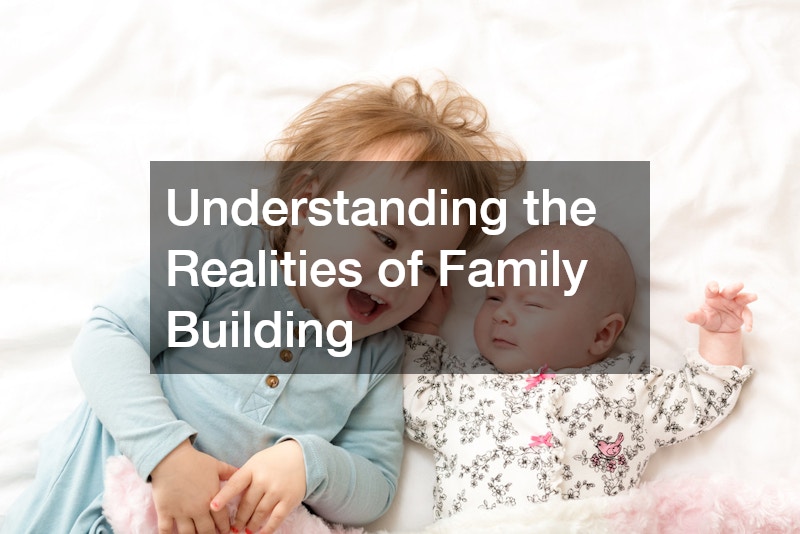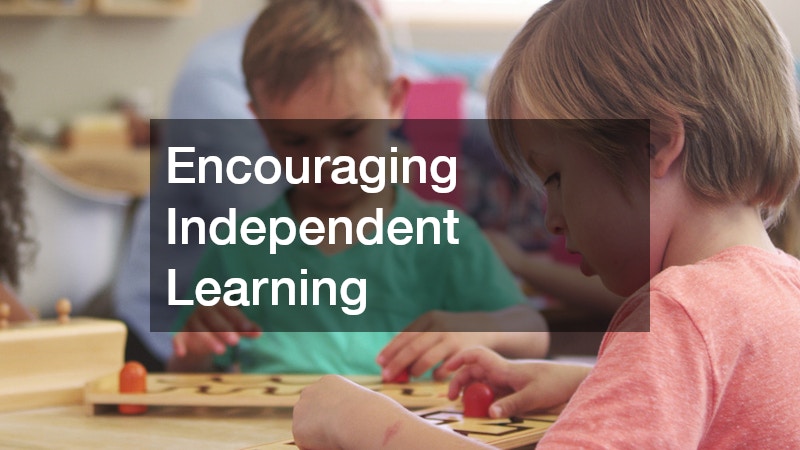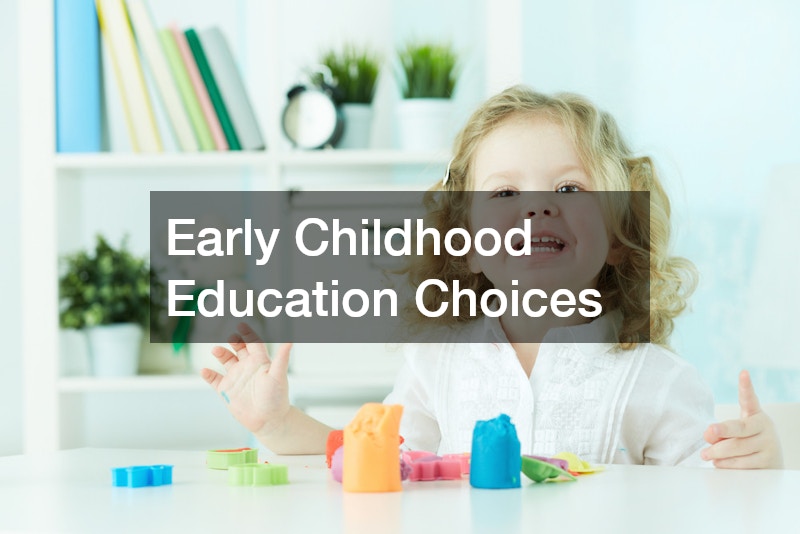10 Essential Things to Know About Babies and Toddlers
Raising a young child is one of life’s most rewarding—and at times, overwhelming—journeys. Whether you’re preparing for your first child or navigating toddlerhood with your growing family, understanding the unique needs and developmental stages of little ones is essential. From establishing healthy routines to creating a safe, loving environment, the early years lay the groundwork for a child’s long-term well-being. Parents today are faced with an abundance of information, which can make it difficult to know where to begin. That’s why it’s helpful to focus on trusted advice and proven strategies that support your child’s growth. In this guide, we’ll explore ten vital areas every parent should be familiar with during the early years of parenting. Along the way, you’ll encounter insights into various parenting topics that can help you feel more confident, prepared, and connected. Let’s dive into the essentials you need to know as your child begins their journey through babyhood and beyond.
1. Creating a Safe and Comfortable Sleep Space
One of the first concerns new parents face is ensuring their baby has a safe and nurturing place to sleep. Choosing the right baby bedroom furniture can make a significant difference in both comfort and safety. Cribs should meet the latest safety standards, with slats that are appropriately spaced and non-toxic finishes. A firm mattress, snug-fitting sheets, and appropriate bedding are also essential. As your baby grows into a toddler, transitioning to a toddler bed with guardrails becomes an important next step. Beyond furniture, consider elements like soft lighting, blackout curtains, and white noise machines to promote restful sleep. The baby’s room should be a calm, organized environment that encourages a sense of security and familiarity. Baby monitors add an extra layer of reassurance, especially during the night. This area of child development is often one of the earliest parenting topics explored by new caregivers. A thoughtfully designed bedroom space contributes to better sleep habits, making it easier to manage the day-to-day challenges of raising a young child. Safety, comfort, and emotional connection all begin in the baby’s personal space, establishing the foundation for healthy routines.
2. Understanding the Realities of Family Building

One of the most complex parenting topics today revolves around the variety of ways families are created. For couples facing fertility challenges, surrogacy can be a viable path to parenthood. However, understanding the average cost of a surrogate is crucial for planning. Costs vary based on legal, medical, and agency fees and can range from $90,000 to over $150,000 in the United States. This number can rise further depending on complications or additional procedures. It’s not just about finances—emotional preparation is equally important. Surrogacy often involves legal contracts, psychological evaluations, and coordination with fertility clinics. Couples considering this route should also consult with surrogacy agencies and experienced professionals to understand the full scope. This is a sensitive and evolving area of parenting, where emotional support and transparent communication are essential. Surrogacy represents a major milestone in a family’s journey and opens the door to important conversations around what it means to become a parent. As part of modern parenting topics, surrogacy requires understanding, compassion, and careful decision-making.
3. The Importance of Early Water Safety
When babies begin to explore the world, water safety becomes one of the critical parenting concerns. Introducing swim lessons at an early age can provide both safety skills and physical development benefits. Pediatricians and water safety experts recommend starting water orientation classes as early as six months old. These classes are designed to help babies become comfortable in the water and can include playful exercises that encourage floating, paddling, and breath control. As your child grows into a toddler, these early experiences lay the groundwork for more structured swim training. Beyond safety, swimming helps strengthen muscles, improve coordination, and support cardiovascular health. Many parenting topics address the anxiety parents feel around water, especially during vacations or summer outings. Building water confidence early on can significantly reduce those fears. Parents should also learn CPR and always supervise water activities closely. Whether in a pool, bath, or lake, water safety should never be underestimated. Swim lessons are a proactive investment in your child’s well-being and peace of mind for parents.
4. Encouraging Independent Learning

Education starts long before a child enters kindergarten. One of the most popular parenting topics in early education today is the value of montessori schools. These institutions focus on child-led learning and hands-on activities that promote critical thinking and independence. Developed by Dr. Maria Montessori, this educational approach emphasizes respect for a child’s natural psychological development. In a Montessori classroom, children are free to move, explore, and choose tasks that interest them, guided by trained educators. The environment is carefully prepared with materials that are both educational and age-appropriate. For babies and toddlers, this might include sensory play, stacking objects, and early reading activities. The goal is to foster a lifelong love of learning, curiosity, and self-discipline. Parents who opt for Montessori education often find that their children develop social skills and confidence early on. It’s a topic frequently discussed in parenting groups, especially among those seeking alternatives to traditional schooling. Choosing a Montessori path requires research and commitment, but it often yields long-term developmental rewards.
5. Healthcare from a Distance
The rise of technology has introduced a powerful tool for busy families: virtual care. This innovation allows parents to access pediatricians, mental health counselors, lactation consultants, and more without leaving home. When your baby spikes a fever in the middle of the night or develops a sudden rash, virtual appointments offer peace of mind without the stress of traveling. Many parents have embraced this option as it reduces exposure to other illnesses and allows quicker access to specialists. Virtual care can also support behavioral consultations, speech therapy sessions, and parental coaching. Among current parenting topics, this one has rapidly evolved, especially since the COVID-19 pandemic. For rural families or those with limited transportation, it bridges an essential healthcare gap. It also empowers parents to become better advocates for their child’s health by participating more actively in consultations. Virtual platforms often offer documentation, prescription services, and follow-up options that streamline care. As technology advances, virtual care will likely remain a cornerstone of pediatric health management, enhancing convenience without compromising quality.
6. Home Safety Goes Beyond Babyproofing
As children grow and start to explore, childproofing the home becomes a priority. But one often-overlooked element of home safety for families with young children is access to fire sprinkler services. While many parents focus on outlet covers, stair gates, and cabinet locks, fire prevention is just as critical. Residential fire sprinkler systems can significantly increase the chances of surviving a fire by containing the blaze before it spreads. For families living in multi-story homes or densely populated areas, having a functioning sprinkler system adds another layer of safety. Installing or inspecting these systems is something new parents might not consider immediately, but it’s an important part of a comprehensive safety strategy. Among various parenting topics, fire prevention tends to be more commonly discussed after an incident, but proactive planning saves lives. Partnering with licensed fire protection companies can help ensure that your home meets code requirements and protects your most precious assets: your children. Ensuring all alarms, extinguishers, and sprinkler systems are in working order creates a safer home environment.
7. Early Childhood Education Choices

The decision of whether to enroll your child in preschools is a key developmental step. Preschool offers structured socialization, foundational academic exposure, and preparation for kindergarten. It also gives toddlers a sense of routine, interaction with peers, and an environment where emotional regulation can be practiced. Preschool options vary widely—some emphasize play-based learning, while others offer bilingual instruction or STEM-focused curricula. Finding the right fit involves observing classes, asking about student-teacher ratios, and understanding each school’s teaching philosophy. Many parenting topics focus on school readiness, especially when it comes to language acquisition and emotional development. A high-quality preschool can nurture curiosity, resilience, and adaptability. Parents are encouraged to visit several institutions, speak with educators, and ensure that their child’s personality and learning style align with the program. Since early childhood education lays the groundwork for future academic success, investing time in this decision is crucial. Additionally, preschool can ease the transition for stay-at-home children who are beginning to interact more with the world around them.
8. Safe and Efficient Home Systems
When managing a household with young children, it’s important to ensure your home’s infrastructure is functioning safely. One commonly overlooked component is the hot water heater. Parents should ensure the water temperature is set to no more than 120°F (49°C) to prevent scalding. Toddlers, especially, are curious and fast, often turning knobs or taps when unsupervised. Water heaters also play a significant role in overall comfort, from warm baths to properly sanitized baby bottles. Regular maintenance of your hot water heater can prevent unexpected breakdowns and ensure energy efficiency, which helps with budgeting, a common concern in parenting topics. If you’re planning renovations or moving to a new home, checking the age and functionality of the unit is vital. Some newer models offer smart features that allow parents to control water temperature remotely or receive alerts about malfunctions. Whether you’re bathing your baby or running a washing cycle for cloth diapers, a reliable and safe water system is a fundamental part of raising children in a secure environment.
9. Oral Health Begins Early

Although a baby’s first teeth don’t appear until around six months of age, visiting the dentist early is important for long-term oral health. Pediatric dentists recommend scheduling a child’s first dental appointment by their first birthday. These early visits help monitor development, identify issues like tongue ties or enamel defects, and educate parents about proper brushing techniques. Fluoride treatments and dental sealants may also be discussed as preventive measures. This is one of the more underrepresented parenting topics, but is essential nonetheless. A toddler’s dental health can influence speech development, nutritional habits, and even sleep quality. Cavities in baby teeth can cause pain and infection that may affect permanent teeth. Introducing dental care routines early—including brushing twice a day and limiting sugary snacks—sets up children for a lifetime of healthy habits. Choosing a pediatric dentist with a friendly demeanor and a welcoming environment can ease anxiety and make visits enjoyable. These foundational habits are best built during the toddler years, before fear of dental procedures can set in.
10. Group Swim as a Social and Physical Milestone
Beyond individual lessons, enrolling in swim schools provides toddlers with a fun, group-oriented environment that reinforces water safety and promotes physical development. Swim schools often offer progressive programs tailored by age and skill level, ranging from water familiarization to basic stroke technique. The social aspect of learning alongside peers enhances motivation, confidence, and enjoyment. Many parenting topics stress the benefits of early sports participation, and swimming is a great entry point. It supports gross motor skills, builds endurance, and encourages discipline in a non-competitive format. Participating in swim schools also allows parents to observe their child’s progress in a safe, instructor-led environment. Instructors are trained to work with young children, providing consistent routines and praise-based feedback that helps kids thrive. Whether your goal is basic water safety or early athletic development, swim schools offer structure, fun, and lifelong skills. Plus, it’s a great way for children and parents to bond while celebrating achievements, big or small, in the water.
Raising babies and toddlers is a multifaceted journey filled with decisions, milestones, and occasional stress. Each of the topics discussed above contributes to a deeper understanding of how to nurture a child’s physical, emotional, and cognitive development. Whether it’s choosing the right educational path, managing healthcare needs, or ensuring home safety with tools like fire sprinklers and a reliable water heater, parenting today is more complex and connected than ever.
As you navigate these early years, engaging with trusted resources and communities on parenting topics will help you feel more empowered and less isolated. From budgeting for the cost of a surrogate to visiting the dentist’s office for the first time, every step carries significance. Understanding the full range of choices—from baby furniture to enrolling in school or swim classes—enables parents to make informed, loving decisions. Embrace the chaos, cherish the cuddles, and remember: every child’s journey is unique, but knowledge and compassion make all the difference. Parenting topics will evolve as your child grows, but your presence, curiosity, and love will always be the foundation.





